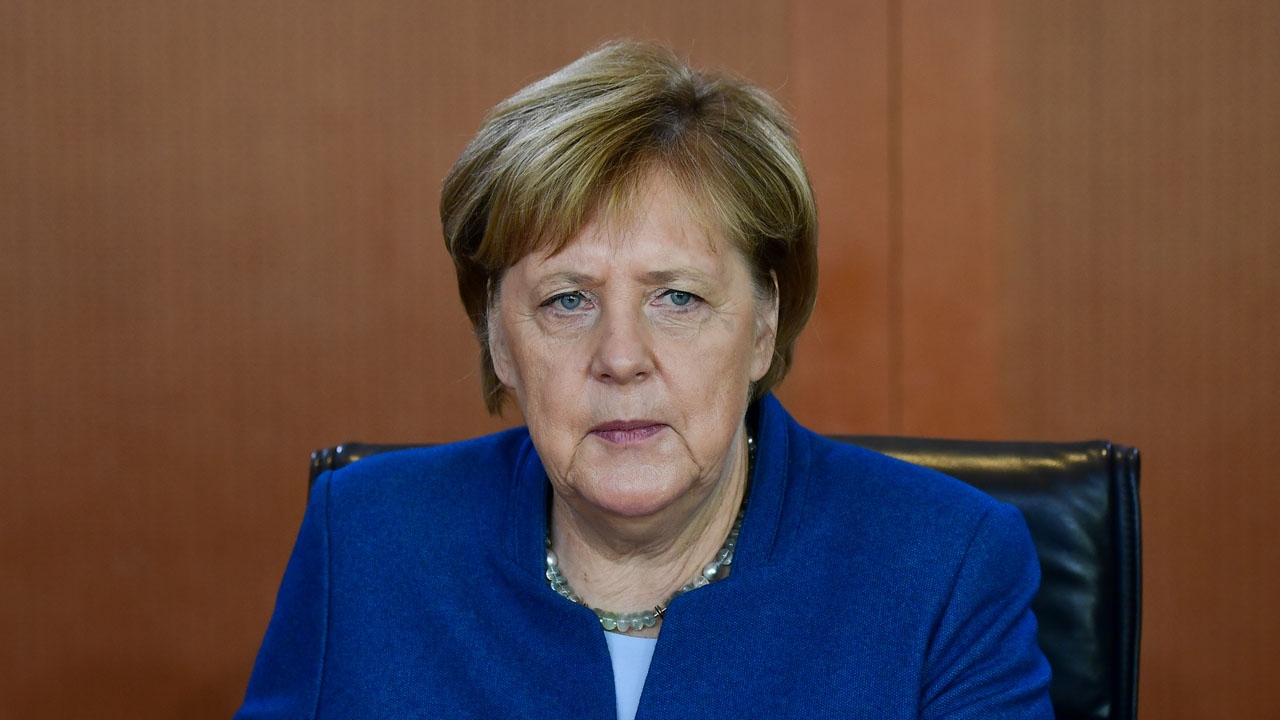
Earlier this month, Bavarian voters deserted in droves the two allies Merkel counts on for her national government alliance in Berlin — the deeply conservative Christian Social Union (CSU) and the centre-left Social Democrats (SPD).
With those results yet to be fully digested in the capital, it’s the turn of voters in Hesse to have their say — and state premier Volker Bouffier, a loyal foot soldier in Merkel’s Christian Democratic Union (CDU), faces a bumpy ride of his own.
Polling at just 26 percent now compared with 38 percent five years ago, the Hessian CDU “may have rested on its laurels for too long”, the state capital’s newspaper Wiesbadener Kurier said.
Surveys suggest that the Merkel formula — government by compromise, with any offensive corners sanded off — has lost its charm and that voter fatigue has set in with her repeated “grand coalition” alliances with the SPD.
– Twilight of the giants –
Two smaller parties have benefited most from exhaustion with the big-tent “people’s parties” that have dominated German post-war politics.
One is the far-right, anti-immigration Alternative for Germany (AfD), the other the left-leaning ecologist Greens.
The AfD has entered 15 of Germany’s 16 state parliaments and the federal Bundestag, propelled by a backlash to Merkel’s migration policy.
The protest party is expected to eat into both the CDU and SPD’s vote to enter the Hessian legislature with a low double-digit share, according to recent polls.
Meanwhile, the Greens — already the junior government partner in Hesse — look poised to roughly double their 2013 vote share to as much as 22 percent, topping the 17.5 percent they scored in conservative Bavaria.
The party attracts voters who favour welcoming refugees, worry about climate change or are fed up with the big parties’ indulgence towards the car companies during a years-long scandal over harmful emissions from diesel vehicles.
Hessian Greens leader Tarek al-Wazir predicted his party would also benefit from disappointment over quarrels that have rocked Merkel’s coalition in recent months, mostly over the AfD’s core issue of immigration.
While the CDU/CSU have been “wrapped up in themselves,” al-Wazir said, “we have never allowed ourselves to be driven crazy by the AfD’s attacks”.
Quarrelers ‘don’t get votes’
Merkel recognises that ugly infighting turns off the public, declaring recently that “people like that don’t get votes”.
The stakes are all the higher for her this time around than they were in Bavaria.
The chancellor’s faithful in the CDU could paint the Bavarian debacle as voters punishing the CSU for its efforts to ape the AfD’s anti-immigrant rhetoric, but there is no such comforting story to tell in Hesse.
A bad result for Bouffier could put her leadership more deeply into question in her own ranks than ever, ahead of a December vote to confirm her as party chief.
Conservative daily Die Welt wrote that if the CDU loses in Hesse, “this could set off a dynamic that costs Merkel all her posts”, asking in a provocative headline “who will kill the queen?”
Endings appeared to be on Merkel’s mind this week as she told public broadcaster Hessischer Rundfunk “everyone now or in the past who tried to organise their succession completely failed. And that’s how it should be.”
Meanwhile in the SPD — polling in the low 20s in Hesse and the mid-teens nationwide — calls to quit the grand coalition are growing ever louder.
“It’s been clear to our members since the beginning that we can’t stay in this alliance at any price,” SPD deputy chairman Ralf Stegner told Die Welt.
CDU general secretary Annegret Kramp-Karrenbauer also acknowledged the tense mood between the grand coalition partners.
“No-one can be 100 percent certain how stable it will remain, and what dynamics may develop within individual parties,” she said Thursday.
She stressed that if one party split off, Merkel would be unwilling to run a minority government, saying instead that “if the coalition does break apart, that will mean fresh elections.”
[ad unit=2]



